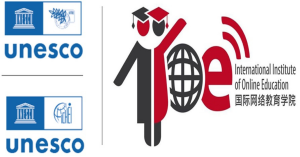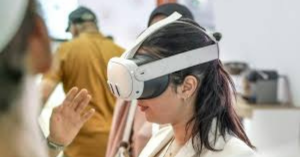Discover 44 available research assistant jobs at leading European universities and institutes, including ETH Zurich, Karolinska Institutet, and the University of Luxembourg. These positions span high-demand fields like Computational Biology, Artificial Intelligence, and Medical Engineering. We are advertising roles from Switzerland, Germany, Sweden, and the Benelux region, offering competitive salaries, PhD pathways, and hands-on project experience. If you hold a Bachelor’s or Master’s degree and are seeking to launch your research career, explore these premier academic opportunities.
Background & Job Description
This article aggregates current research assistant vacancies from the Academic Positions platform. Our site is an independent job board and is not directly affiliated with the universities and institutes listed. This information is provided as a service to the global research community; all applications must be submitted through the respective institution’s official recruitment portal.
Research assistant positions are foundational roles for individuals looking to build a career in academia, industry R&D, or specialized technical fields. These positions provide invaluable hands-on experience, allowing recent graduates and early-career researchers to contribute to cutting-edge projects under the guidance of established scientists and professors. The roles typically involve a combination of laboratory work, data analysis, literature reviews, and supporting the broader research activities of a department or specific research group.
The 44 positions we are currently advertising represent a wide spectrum of scientific inquiry and are hosted by some of Europe’s most prestigious institutions. From developing AI tools at the University of Luxembourg to studying ocean nanoplastics at the Royal Netherlands Institute for Sea Research (NIOZ), these roles offer a unique entry point into the international research landscape. They provide a platform for skill development, professional networking, and, in many cases, a pathway to pursuing a doctoral degree.
Featured Research Assistant Opportunities
The following is a selection of prominent research assistant roles currently available, highlighting the diversity of fields and locations.
1. Scientific Assistant in Engineering Geodesy – ETH Zürich (Zurich, Switzerland)
- Focus Area: Contributing to research in geomonitoring, reality capture, and the processing of geodetic data.
- Key Tasks: Supporting ongoing research projects, assisting with teaching activities, and developing methodologies for geodetic data analysis.
- Ideal Candidate: A candidate with an MSc in Geodesy, Geomatics, or a related field, and proficiency in both German (C1) and English (B1).
2. Research Assistant in Human Organoid Modelling – Karolinska Institutet (Stockholm, Sweden)
- Focus Area: Working with patient-derived esophageal organoids to study the effects of inflammation.
- Key Tasks: Culturing organoids, performing immunofluorescence (IF) staining, and preparing samples for single-cell sequencing analysis.
- Ideal Candidate: A molecular biologist with a Master’s degree and hands-on experience in organoid culture, flow cytometry, or bioinformatics.
3. R&D Specialist in AI and Software Engineering – University of Luxembourg (Luxembourg)
- Focus Area: Developing AI tools, leading open-source projects, and prototyping emerging technologies within the SERVAL research group.
- Key Tasks: Full-stack software development, implementing AI algorithms, and contributing to research publications.
- Ideal Candidate: A software engineer or computer scientist with a Master’s degree, strong Python skills, and fluency in English.
4. Technical/Research Assistant: “Biogeochemistry of ocean nanoplastics” – NIOZ (Den Helder, The Netherlands)
- Focus Area: Assisting with lab and fieldwork focused on the analysis of nanoplastics in ocean environments.
- Key Tasks: Conducting stable isotope and DNA/RNA analyses, participating in sea expeditions, and managing laboratory equipment.
- Ideal Candidate: A candidate with an HBO (University of Applied Sciences) degree, relevant lab experience, and a willingness to go to sea.
5. Data scientist for life science research support and training – University of Luxembourg (Esch-sur-Alzette, Luxembourg)
- Focus Area: Providing bioinformatics support and training for life science researchers across Luxembourg.
- Key Tasks: Developing analytical pipelines in Python/R, delivering workshops, and supporting researchers with data analysis.
- Ideal Candidate: A bioinformatician with a Doctorate or a Master’s and significant experience, strong teaching skills, and proficiency in Unix environments.
44 Research Assistant Jobs Across Europe: Opportunities in Biology, AI, and Engineering
Qualifications
Education and Certification
- The majority of these research assistant positions require a Master of Science (MSc) degree in a field directly relevant to the project (e.g., Computer Science, Molecular Biology, Electrical Engineering, Geodesy).
- Several technical or laboratory support roles may accept a Bachelor’s degree (BSc) or an HBO/equivalent from a University of Applied Sciences, especially when combined with specific technical expertise.
- For roles that are part of a PhD track, a relevant Master’s degree is a prerequisite for formal enrollment in the university’s doctoral program.
Experience
Required Experience:
- While these are often early-career roles, practical, hands-on experience is highly valued. This can include experience gained through a Master’s thesis project, internships, or previous work in a research laboratory.
- For technical roles, proven proficiency with specific techniques is key, such as:
- Molecular Biology: Cell culture, PCR, microscopy, flow cytometry.
- Computational Science: Programming in Python or R, experience with data analysis libraries, bioinformatics pipelines.
- Engineering: CAD software, data acquisition systems, prototyping.
- The ability to work effectively in a team, strong organizational skills, and a capacity for meticulous work are common requirements across all listings.
Desired Experience:
- Prior publication in a scientific journal, even as a co-author, is a strong asset.
- Experience with the specific equipment or methodologies mentioned in the job description (e.g., single-cell sequencing, geodetic monitoring instruments, argumentation tools).
- For international institutes, experience working in a multicultural environment is beneficial.
Additional Information
Language Requirements:
- English is the primary working language for most international research groups, and a high level of proficiency is a standard requirement.
- For positions in non-English speaking countries (e.g., Germany, Switzerland, Belgium, Sweden), knowledge of the local language (German, French, Dutch, Swedish) is often required or strongly preferred, particularly for roles involving teaching or interaction with local stakeholders.
Contract & Compensation Details:
- Contract Type: Fixed-term contracts are the norm, typically aligned with the duration of a specific research project grant (e.g., 2-3 years).
- Salary: Salaries are competitive and based on national or institutional pay scales for academic staff (e.g., TV-L in Germany, collective agreement scales in Sweden and the Netherlands). The listed salary for the MCI Entrepreneurial School in Austria, for example, starts at €41,300 per year.
- Benefits: Most positions include standard benefits such as health insurance, pension contributions, and paid vacation. Many universities also offer support for professional development and continued education.
How to Apply:
Application processes are managed entirely through the hiring institution’s website. Candidates are typically required to submit:
- A detailed Curriculum Vitae (CV).
- A cover letter/motivation letter tailored to the specific position.
- Academic transcripts and copies of degree certificates.
- The contact information for 2-3 professional or academic references.
Equal Opportunity Statement:
The European academic sector is deeply committed to equality, diversity, and inclusion. All the advertised institutions are equal opportunity employers and strongly encourage applications from qualified individuals regardless of gender, nationality, ethnic or social origin, religion, disability, age, or sexual orientation.
Suggested Top Keywords:
Research assistant jobs, academic positions, PhD track, University of Luxembourg, ETH Zurich, Karolinska Institutet, molecular biology, computer science, AI research, data scientist, bioinformatics, engineering, laboratory technician, Europe jobs, Switzerland, Germany, Sweden, Netherlands, fixed-term contract, Master degree jobs, academic recruitment.



